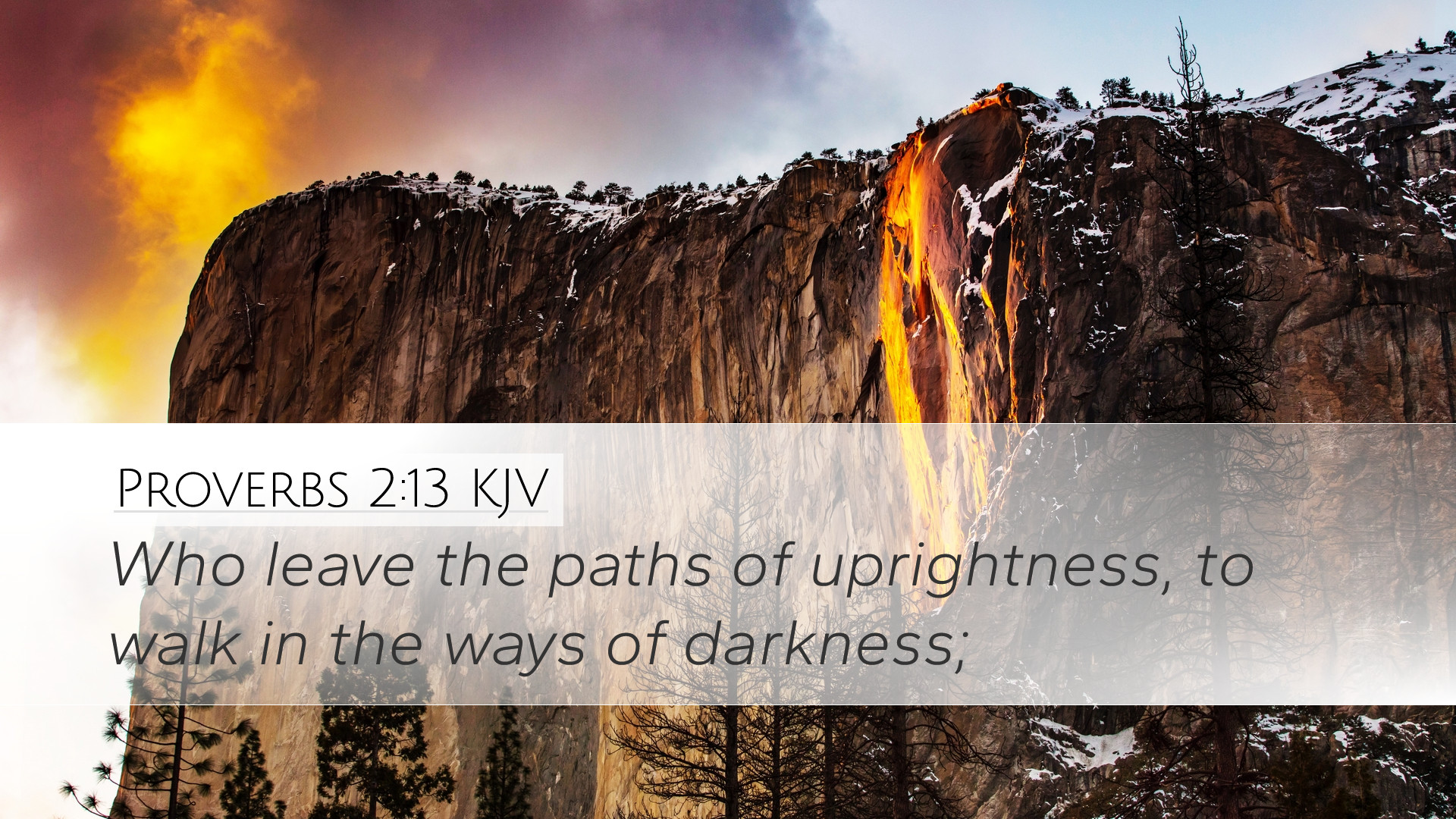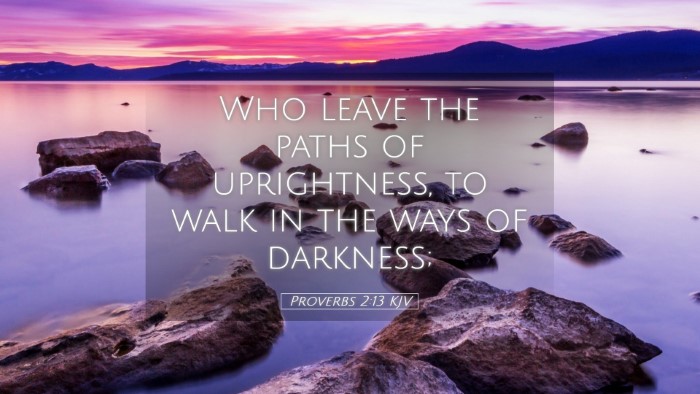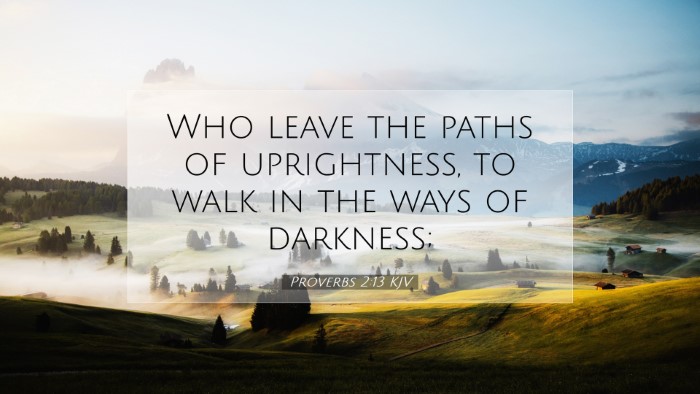Proverbs 2:13 - Commentary and Insights
Verse Text: "Who leave the paths of uprightness, to walk in the ways of darkness;"
Introduction
Proverbs 2:13 serves as a warning against those who forsake the righteous path for ways that lead to darkness. This verse highlights a significant moral and spiritual choice that individuals face in their lives. The insights drawn from esteemed public domain commentaries are invaluable for understanding the implications and applications of this passage.
Contextual Overview
In the larger context of Proverbs 2, the writer imparts wisdom on the pursuit of knowledge and understanding. The chapter emphasizes the blessings that come from seeking wisdom, and contrasts this with the consequences of ignoring virtuous paths. This dichotomy is essential for grasping the weight of Proverbs 2:13.
Insights from Various Commentators
Matthew Henry
Matthew Henry describes the "paths of uprightness" as the ways of righteousness that conform to the will of God. He emphasizes that those who stray from these paths enter into "the ways of darkness," which represents ignorance, sin, and spiritual peril. Henry notes:
- Righteousness vs. Wickedness: The contrast between the two paths highlights the consequences of moral decisions.
- Spiritual Decline: Leaving the paths of uprightness signifies a willful departure from divine instruction, often followed by a progression into deeper darkness.
- Influence of the Wicked: Henry warns that the company one keeps can lead them away from wisdom. Those who associate themselves with the wicked will inevitably find themselves walking in darkness.
Albert Barnes
Albert Barnes further elaborates on the metaphorical significance of "paths" in this verse. He correlates them to life choices and moral decisions. He suggests:
- Deliberate Choice: The decision to leave the paths of uprightness is often a conscious act, illustrating a rejection of God's guidance.
- Consequences: Walking in darkness leads to dangerous situations that not only affect the individual but also those around them.
- Social Implications: Barnes emphasizes the idea that forsaking wisdom can lead individuals into corrupt company, which influences their behavior.
Adam Clarke
Adam Clarke offers a detailed analysis of the linguistic and cultural context of the verse. He comments on the significance of light versus darkness:
- Spiritual Insight: Clarke posits that darkness symbolizes ignorance and sin, while uprightness equates to moral clarity and divine wisdom.
- Cultural Context: The choice of walking in darkness indicates a turning away from the covenant community's moral standards, which were of utmost importance in the Israelite context.
- Impact on Community: Clarke believes that such choices impact both individual and collective faith, as personal decisions can lead to broader societal consequences.
Application for Pastors and Theologians
This verse serves as a pertinent reminder for pastors and theologians when discussing the concept of moral choices within their congregations.
- Teaching about Choices: It is vital to encourage followers to remain steadfast in their pursuit of righteousness and provide them with the tools and teachings that reinforce this commitment.
- Preaching against Isolation: Leaders should warn against the dangers of associating with those who practice wickedness, as it can lead believers away from their faith.
- Community Awareness: The church must recognize that the collective moral decisions of its members have profound implications for its witness in the world.
Personal Reflections and Conclusions
Proverbs 2:13 calls individuals to reflect on their daily decisions and the company they choose to keep. The path of uprightness is one that leads to enlightenment, while the rejection of such a path leads to darkness and despair. The insights from Henry, Barnes, and Clarke stress the importance of choice, community, and consequence.
In closing, let this verse remind us of the gravity of our moral decisions. Each choice we make contributes to our spiritual journey. May we seek wisdom diligently, ensuring that we walk firmly in the paths of uprightness.


